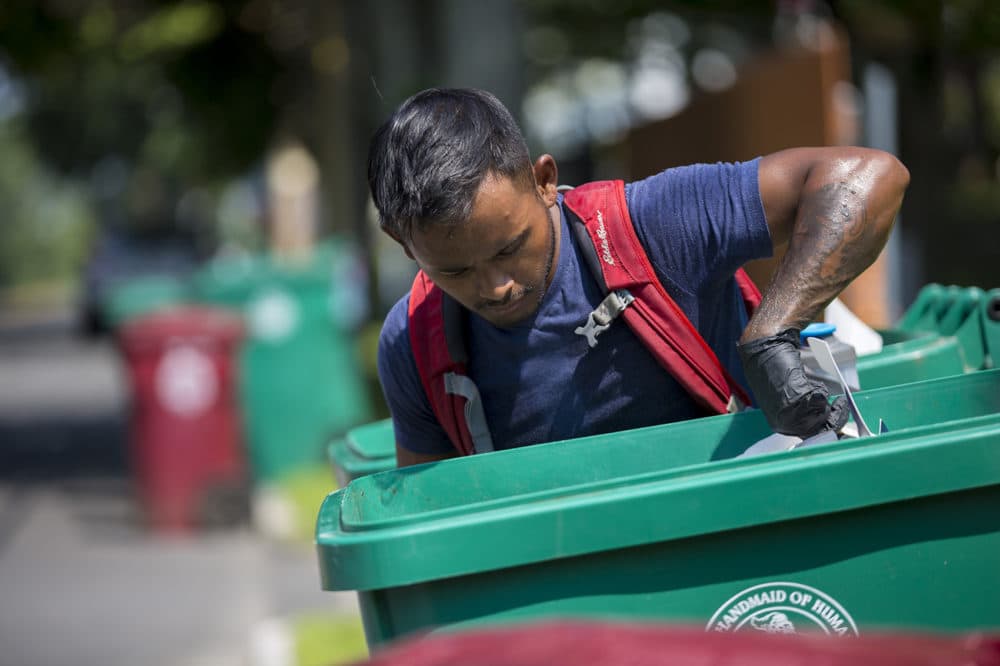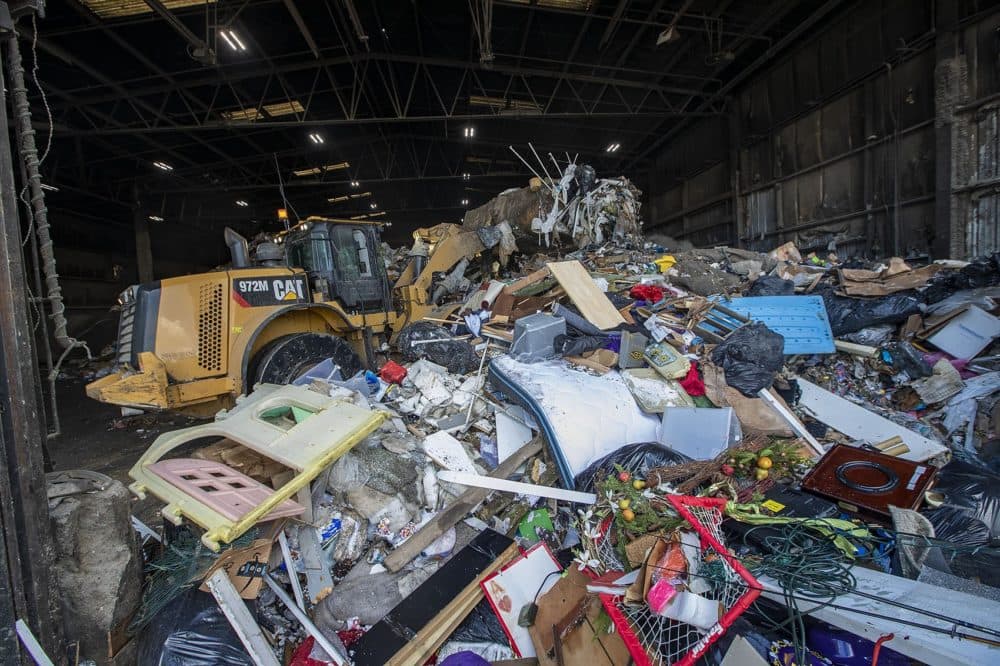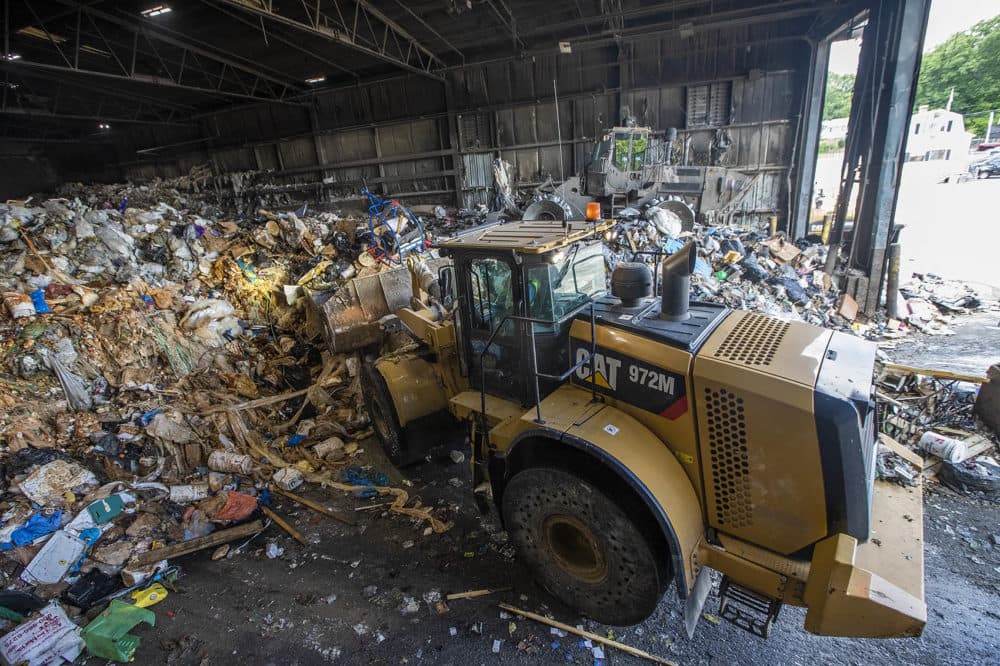Advertisement
Environmental groups say state's trash reduction plan not strong enough

After two years of public hearings and planning, the Baker administration's plan for how to handle the state's solid waste over the next decade landed with a thud among environmental advocates, who panned the proposal as "too little too late."
The Department of Environmental Protection officially set a target to cut down waste disposal in Massachusetts 30% by 2030 and 90% by 2050 as part of its final 2030 Solid Waste Master Plan published Monday. That effort aims to address the fact that, in the words of Lt. Gov. Karyn Polito, "too much trash in Massachusetts still contains materials that can be recycled and reused."
While advocates praised a handful of components in the plan such as a new ban on disposing textiles and mattresses starting in November 2022, they contended that environmental regulators fell short of the action needed to rein in pollution and improve public health.
Groups called for the state to revamp its approach with an additional focus on composting, a new crackdown on throwing away materials such as paper and glass, and less emphasis on burning trash.

"We need MassDEP to do better," said Kirstie Pecci, director of the Conservation Law Foundation's Zero Waste Project. "Massachusetts is burning and burying as much waste now as we did in 2010. It's long past time to phase out incineration, ban food scraps from trash and enforce existing waste bans. These pleas have apparently fallen on deaf ears as nothing in the state's plan will fix our broken recycling system, decrease disposal rates, or save cities and towns money. Our health and the environment deserve better."
In 2018, Massachusetts steered about 5.66 million tons of solid waste to landfills and incinerators or exported it for disposal. In 2019, the most recent year with annual data available, that figure dropped to 5.5 million tons.
The DEP's master plan aims to slash the yearly solid waste disposal to 4 million tons by 2030, and it also sets a long-term goal of just 570,000 tons of waste by 2050, the same year by which the state must achieve net-zero carbon emissions under a climate law Gov. Charlie Baker signed in March.
To get there, DEP plans to lower the amount of food and other organic waste Massachusetts businesses are allowed to toss from one ton per week to half a ton per week and add mattresses and textiles to the list of materials prohibited from disposal. Both of those regulatory changes are set to take effect Nov. 1, 2022.
DEP's solid waste plan additionally calls for reducing the amount of plastic materials burned to help reduce the amount of carbon dioxide equivalent emissions that municipal combustors produce by 300,000 metric tons every year.

The department continues to work on a "Reduce and Reuse Action Plan," which DEP Commissioner Martin Suuberg said would be the first comprehensive outline aimed at reducing and reusing waste rather than just recycling. Officials expect to publish an initial version by the end of the year.
Environmental justice communities will feature as a main focus in the plan, which calls for increased engagement with EJ populations during DEP regulatory processes, improved recycling grant evaluations, small-scale composting assistance to help community gardens, and deployment of hybrid and electric trash and recycling pick-up vehicles in those communities.